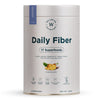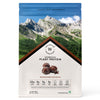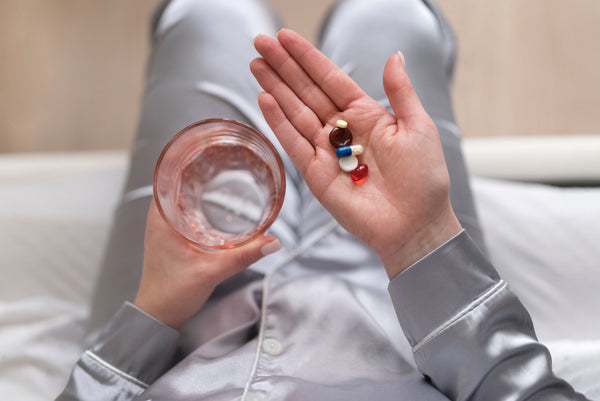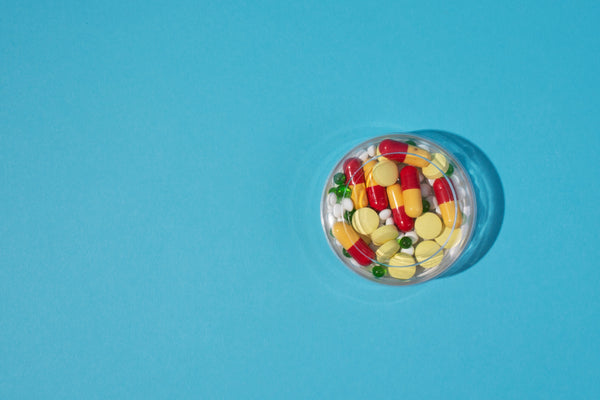While our bodies need cholesterol to function, too much of the wrong kind can be a red flag for heart health. The good news? There are natural and effective ways to reduce cholesterol without relying solely on medication. If you’re wondering how to lower cholesterol while keeping things simple and sustainable, here are five powerful strategies to help you maintain healthy cholesterol levels—naturally.
1. Make Fiber Your Best Friend
Think of fiber as nature’s broom—it sweeps out excess cholesterol before it gets a chance to settle in your bloodstream. Soluble fiber, in particular, binds with cholesterol and helps remove it from your body. Foods like oats, flaxseeds, apples, and legumes are rich in this type of fiber and can work wonders in helping you reduce cholesterol naturally.
Adding fiber-rich foods to your meals is easy—start your morning with a hearty bowl of steel-cut oats topped with chia seeds, add lentils to soups and salads, or snack on a handful of almonds. Aim for at least 25-30 grams of total fiber per day to see long-term benefits.
2. Choose Healthy Fats
Not all fats are created equal. While trans fats and excessive saturated fats can wreak havoc on your cholesterol levels, healthy fats—like those found in avocados, nuts, seeds, and olive oil—can do the exact opposite. These fats help boost HDL cholesterol (the "good" cholesterol) while reducing LDL levels.
To incorporate more healthy fats into your diet, swap out butter for olive oil when cooking, add a slice of avocado to your sandwiches, and snack on walnuts or flaxseeds. Fatty fish like salmon, mackerel, and sardines are also excellent sources of omega-3 fatty acids, which help reduce inflammation and improve overall heart health.
3. Cut Back on Refined Carbs and Sugar
While we often blame fats for cholesterol issues, refined carbs, and sugar play a bigger role than most people realize. Excess sugar consumption leads to increased triglycerides and lower HDL levels—both of which can negatively impact your cholesterol profile.
Instead of reaching for white bread, pastries, and sugary drinks, opt for whole grains, fruits, and healthy fats to stabilize your cholesterol and overall health. Try replacing sugary snacks with natural alternatives like berries, nuts, or dark chocolate. Choosing whole grains such as quinoa, brown rice, and whole wheat bread instead of their refined counterparts can make a significant impact. Also, be mindful of hidden sugars in processed foods—reading labels can help you make better choices.
4. Get Moving—Every Step Counts
Exercise isn’t just for your waistline; it’s also one of the most effective ways to reduce cholesterol. Regular physical activity helps increase HDL cholesterol while lowering LDL and triglycerides.
The American Heart Association recommends at least 150 minutes of moderate exercise per week to support heart health. Incorporating movement into your daily routine can be easier than you think. Try taking a 30-minute brisk walk after meals, cycling to work, or even engaging in strength training exercises a few times a week.
Even simple activities like gardening, dancing, or taking the stairs instead of the elevator can contribute to better heart health over time.
3. Introduce Natural Plant Sterols
If you’re serious about lowering cholesterol fast, plant sterols should be on your radar. These naturally occurring compounds are structurally similar to cholesterol and compete with it for absorption in the digestive tract—essentially blocking its entry into your bloodstream. [NIH]
Supplements containing plant sterols offer a natural approach to managing cholesterol. Many fortified foods, such as certain margarines, orange juices, and yogurts, contain plant sterols, but a high-quality supplement ensures a consistent and effective dose. Pairing plant sterols with a balanced diet can lead to noticeable improvements in cholesterol levels within weeks.
Final Thoughts
Achieving healthy cholesterol levels doesn’t have to be complicated. By making a few mindful choices—like increasing fiber, choosing healthy fats, incorporating plant sterols, staying active, and reducing refined carbs—you can reduce cholesterol naturally and take control of your heart health. Small, consistent changes can add up to a lifetime of benefits.
It’s important to listen to your body and work with a healthcare professional to monitor your progress. Cholesterol management is a journey, but with the right habits and natural solutions, you can make heart health a long-term priority. So, why not start today?
FAQs
1. What is cholesterol, and why is it important?
Cholesterol is a fatty substance found in your blood that your body needs to build cells and produce certain hormones. However, having too much of the wrong type—low-density lipoprotein (LDL), also known as "bad" cholesterol—can lead to plaque buildup in the arteries, increasing the risk of heart disease. High-density lipoprotein (HDL), or "good" cholesterol, helps remove excess cholesterol from the bloodstream, promoting heart health.
2. What foods should I avoid to lower my cholesterol?
To maintain healthy cholesterol levels, avoid trans fats, excessive saturated fats, refined carbs, and added sugars. Processed foods like pastries, fried foods, white bread, and sugary drinks can negatively impact cholesterol by increasing LDL levels and lowering HDL cholesterol. Instead, opt for fiber-rich foods, healthy fats, and whole grains.
3. Is there a role for supplements in lowering cholesterol?
Yes, certain supplements, like those containing plant sterols, can help reduce cholesterol naturally. Plant sterols compete with cholesterol for absorption in the digestive tract, effectively lowering LDL levels. Additionally, omega-3 fatty acids from fish oil and fiber supplements can support heart health when paired with a balanced diet.
4. Can lowering cholesterol reverse heart disease?
While lowering cholesterol can significantly reduce the risk of heart disease, it may not completely reverse existing arterial plaque. However, adopting a heart-healthy lifestyle—including a high-fiber diet, healthy fats, regular exercise, and plant sterols—can slow progression, improve heart health, and lower the chances of future complications.




























